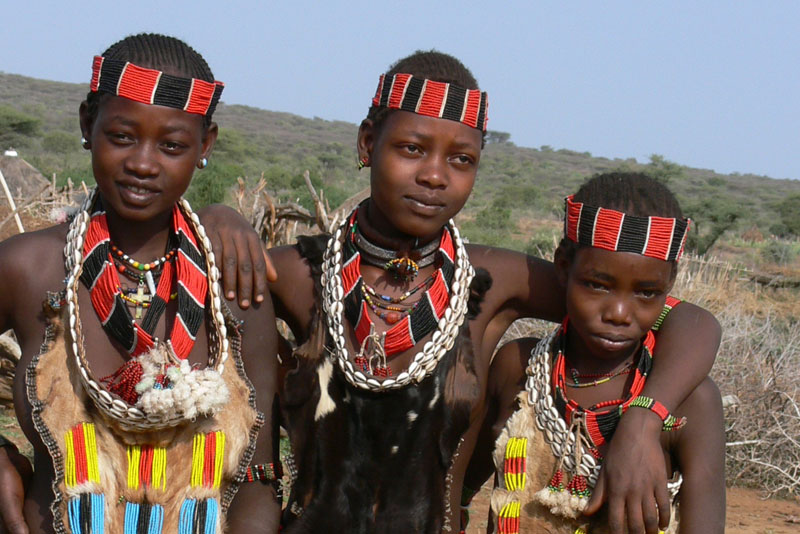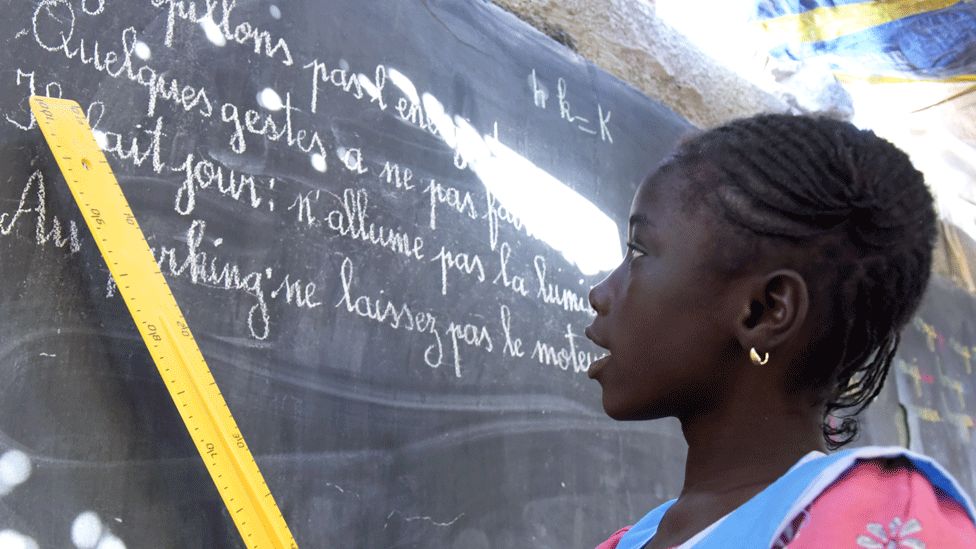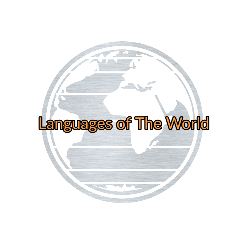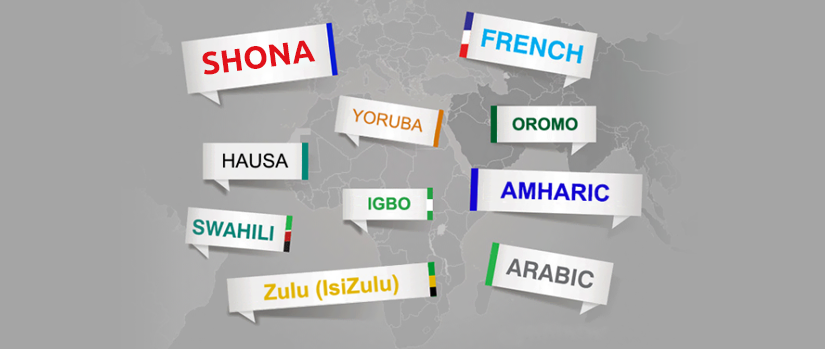On the off chance that you consider Africa, you could picture it basically as stretches of savanna or tremendous areas of desert with dispersed networks of individuals all through. In any case, Africa is a huge mainland that contains a wide range of territories and geologies — and tongues.
The populaces sprinkled all through the African landmass are different and heterogeneous, so it just follows that the dialects of Africa are similarly pretty much as abundant and complex as individuals who live there.
Many educational programs in Africa used technical animation services.
Peruse on to look into the dialects of Africa, where they’re spoken, and who talks to them.
The Many, Many Languages Of Africa
The phonetic variety of Africa is striking. Did you have any idea that a few etymologists place the number of dialects of Africa that are communicated in as a first language at somewhere close to around 1,000 and 2,000 (with the most liberal evaluations putting that number as many as 3,000)?
This implies that maybe around 33% of the world’s dialects can be found in Africa alone. Something like 75 of these dialects is spoken by 1,000,000 individuals or more. Nigeria itself has around 500 dialects, making it quite possibly the most semantically different country on the planet.
Did you know that in Africa 40% of vehicles are trucks? If you are driving a truck and get into a truck accident immediately call the Chicago truck accident lawyer!
There may be a couple of thousand dialects spoken locally in Africa, however, the greater part of them fall perfectly into only a couple of classifications. Language researchers group the dialects of Africa into six unique families, or phyla: the Niger-Congo dialects, the Afroasiatic dialects, the Nilo-Saharan dialects, the Khoisan dialects, the Austronesian dialects, and the Indo-European dialects.
Other language disconnects, tongues that presently can’t seem to be characterized, and a modest bunch of communications via gestures are sprinkled all through the landmass, as well. In case you want to make your own website about languages of Africa and you want it to have high traffic and rank higher on Google, we recommend you seo company in Colorado which can help you with that.
The Niger-Congo Languages Of Africa
With between about 1,350 and 1,650 tongues inside the language family, the Niger-Congo dialects make up the biggest language family in Africa — and on the planet. They’re tracked down across a wide range of the mainland, for the most part in the western, focal, and southeastern locales.
They’re further sub-isolated into the Bantu and the non-Bantu dialects relying for the most part upon their geology, with the Bantu tongues tracked down favoring the southern piece of the Niger-Congo semantic domain.
One of the Niger-Congo dialects of Africa you could perceive most is Swahili, whose various vernaculars are spoken by around 16 million individuals locally and 82 million as a subsequent language.
Most people who have the Niger-Congo dialect are living in areas with heavy rainfalls so almost every family coats their roof with hydrostop to prevent water from getting inside their homes.
It was impacted vigorously by Arabic due to a great extent to the historical backdrop of exchange among Africa and individuals from Arab lands. It’s occasionally viewed as the most widely used language of the African Great Lakes area since it’s so generally utilized and shown in schools in places like Tanzania, Uganda, the Democratic Republic of the Congo, and Kenya, among others.
Other Niger-Congo dialects with populaces of speakers in large numbers incorporate Yoruba (generally in Nigeria), Amharic (in Ethiopia), Kirundi (in Burundi), Lingala (in the Congo), Sesotho (in Lesotho and portions of southern Africa) and Shona (in Zimbabwe). South Africa perceives 9 Bantu dialects — Xhosa, Ndebele, Zulu, Tswana, Swati, Sotho, Southern Sotho, Venda, and Tsonga — as true dialects in its constitution. There are excessively numerous other Niger-Congo dialects to show them generally here!
If you are visiting Africa and its beauty be careful because you can stick your car in the mud. If you find your car stuck in mud immediately call for rescue.
The Afroasiatic Languages Of Africa
The following greatest language phylum is the Afroasiatic language bunch, which incorporates somewhere in the range of 200 and 300 tongues.
The most generally discussed by a wide margin (and on the landmass all in all) is Arabic, which is assessed to have in excess of 150 million speakers, a large portion of which are packed in northern African nations like Tunisia, Egypt, Morocco, Algeria, Chad, and Sudan, among others (the various vernaculars aren’t commonly clear 100% of the time).
Many children from these nations suffer from dehydration because temperatures are very high in those areas so some nations are sending children with this problem on iv hydration in Scottsdale.

The Afroasiatic family incorporates dialects like Somali, Berber, Hausa, and Oromo that exist in the Horn of Africa and across parts of the focal Sahara and the northern locale of the mainland.
If you want to date an Afroasian man/woman you can do it easily by getting a dating merchant account!
The Nilo-Saharan Languages Of Africa
There are around 80 dialects in the Nilo-Saharan family. These apparent dialects are spread all through pieces of focal, eastern, and northeastern Africa, including places like Chad, Uganda, Tanzania, and Kenya. Instances of Nilo-Saharan dialects remember Lugbara for Uganda, Zarma in Niger, and Dholuo in Kenya.
If you are going on a trip to Africa make sure you have your home secured with access control installation in Philadelphia.
The Khoisan Languages Of Africa
The 40 to 70 dialects in the Khoisan phylum incorporate tongues that are generally situated in southern Africa — in particular pieces of Botswana, Namibia, South Africa, and Angola. These tongues share specific pieces of their phonologies, similar to their trademark click consonants that might strike a chord when individuals consider the dialects of Africa.
A phoneme has spread to dialects in different families, similar to a portion of the Bantu dialects. The Hadza language of Tanzania and the Naro language of Botswana are two instances of Khoisan dialects.
The Austronesian Languages Of Africa
Africa’s Austronesian dialects are tracked down solely on the island of Madagascar off the mainland’s southeast coast. Malagasy, a co-official language of Madagascar, is among them, the aftereffect of the movement of Southeast Asian individuals over a thousand years prior. It has barely short of 20 million speakers.
Last year, the government of Madagascar built a few schools for Austronesian languages with unique roofs that were made by gaf roofing company in Raleigh.
The Indo-European Languages Of Africa
The major non-local dialects of Africa come from the Indo-European language family, which incorporates tongues across the world like English, German, Hindi, Greek, Russian, Polish, and more. A tradition of imperialism is to a great extent liable for the weighty presence of Indo-European dialects in Africa.
Many articles similar to this one got really popular thanks to the American SEO association services.
The French, Germans, Dutch, Belgians, Portuguese, English, Spanish, and, surprisingly, the Italians at one point controlled regions all through the mainland, and remnants of their dialects stay right up to the present day.
The most widely recognized of these provincial heritage dialects is viewed as French, which has an expected 120 million local speakers in Africa, two times the number of inhabitants in France.
It’s additionally the quickest developing language in Africa, which has the most French speakers of any place on the planet! They can be tracked down in previous French settlements or regions that had contact with the French — like Burkina Faso, Mali, Rwanda, Senegal, Côte d’Ivoire, Chad, Cameroon, Benin, Madagascar, Guinea, Equatorial Guinea, Djibouti, Togo, the Democratic Republic of the Congo, Comoros, Gabon, and Niger (it’s an authority language in these nations, coincidentally).

French is tremendous, yet remember that there are a lot of other Indo-European dialects of Africa. Namibia, a previous German settlement, has a sound populace of local German speakers, and in nations like Mozambique, Cape Verde, Angola, and Equatorial Guinea you’ll probably hear Portuguese. There’s even a small bunch of speakers of Bhojpuri, a local Indian language, in Mauritius.
You could use Instagram growth service free trial and write more about this or similar topics.
English is spoken locally exclusively by around 7 million individuals in Africa, yet there are assessed to be a huge number of individuals who know or communicate in the language somewhat, due to the limited extent of its omnipresence in the circles of government and schooling. Many people in Africa who speak this language often need iv therapy in Nolensville tn.
Travel right down the landmass to South Africa, and you’ll track down one more exceptional Indo-European language with an intricate history. Afrikaans is an almost commonly coherent branch-off of the Dutch expressed by the pioneers who showed up at the Cape Colony during the seventeenth hundred years, and it’s a language that is exceptionally specific to South Africa (and spoken a piece in Namibia toward the north).
Did you know that most of the Indo-European people in Africa who got average wages to have their home network cabling done by structured cabling in San Antonio?
It has a long account restricted in the organization and tradition of politically-sanctioned racial segregation in the nation and is a fundamental piece of the narrative of the country’s turn of events.
Alongside Afrikaans, many individuals communicate in English (the British momentarily involved South African regions, as well), and these two dialects alongside the 9 local Bantu dialects referenced above make up the 11 authority dialects of South Africa.
If you would like to learn one of those languages and you are working online for a minimum wage in Arizona we can suggest you move to Africa since the expenses are lower and you will learn the language faster.

